The Cello Concerto of Antonín Dvořák Op. 104 is considered by most cellists as the ultimate masterpiece that displays the depth, emotion, versatility, and range of our beloved instrument. Composed for the cellist Hanuš Wihan during Dvořák’s term as Director of the National Conservatory of Music in New York, it is thought that three things inspired this great work— his ongoing homesickness, the inspiration of hearing Victor Herbert’s Cello Concerto No. 2 in 1894, and the receipt of a letter with the news that his sister-in-law, Josefina Kaunitzová, was gravely ill.
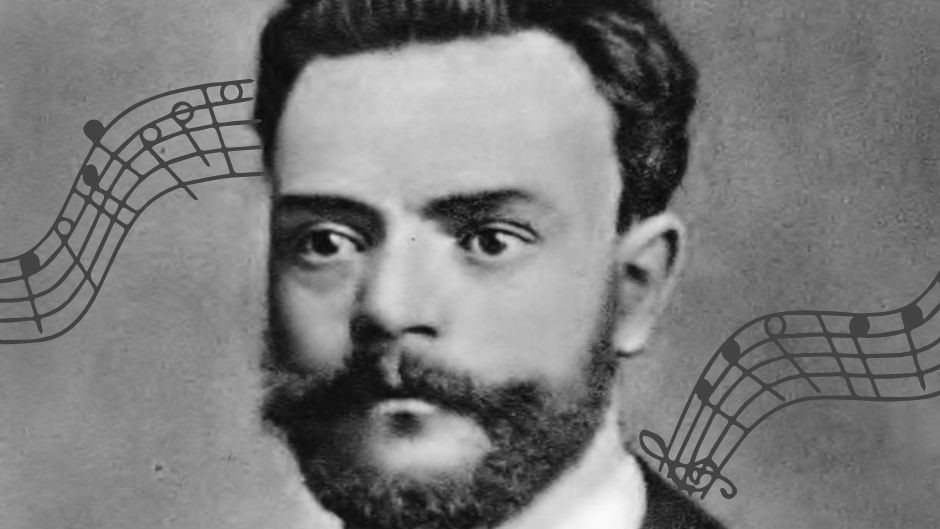
Antonín Dvořák
Obviously the work of a composer who’d mastered the art of orchestration, the piece is grandiose, full-throated, yet the cello is able to soar above the large ensemble. Its length at approximately 50 minutes, and the larger-than-life expressive and technical requirements of the soloist make it the epitome of the repertoire.
If you’ve ever heard auditions, this concerto is the one most often attempted. Every cello student and professional learns this piece. For me, there are cellists who stand out as the leading champions.
Mstislav Rostropovich
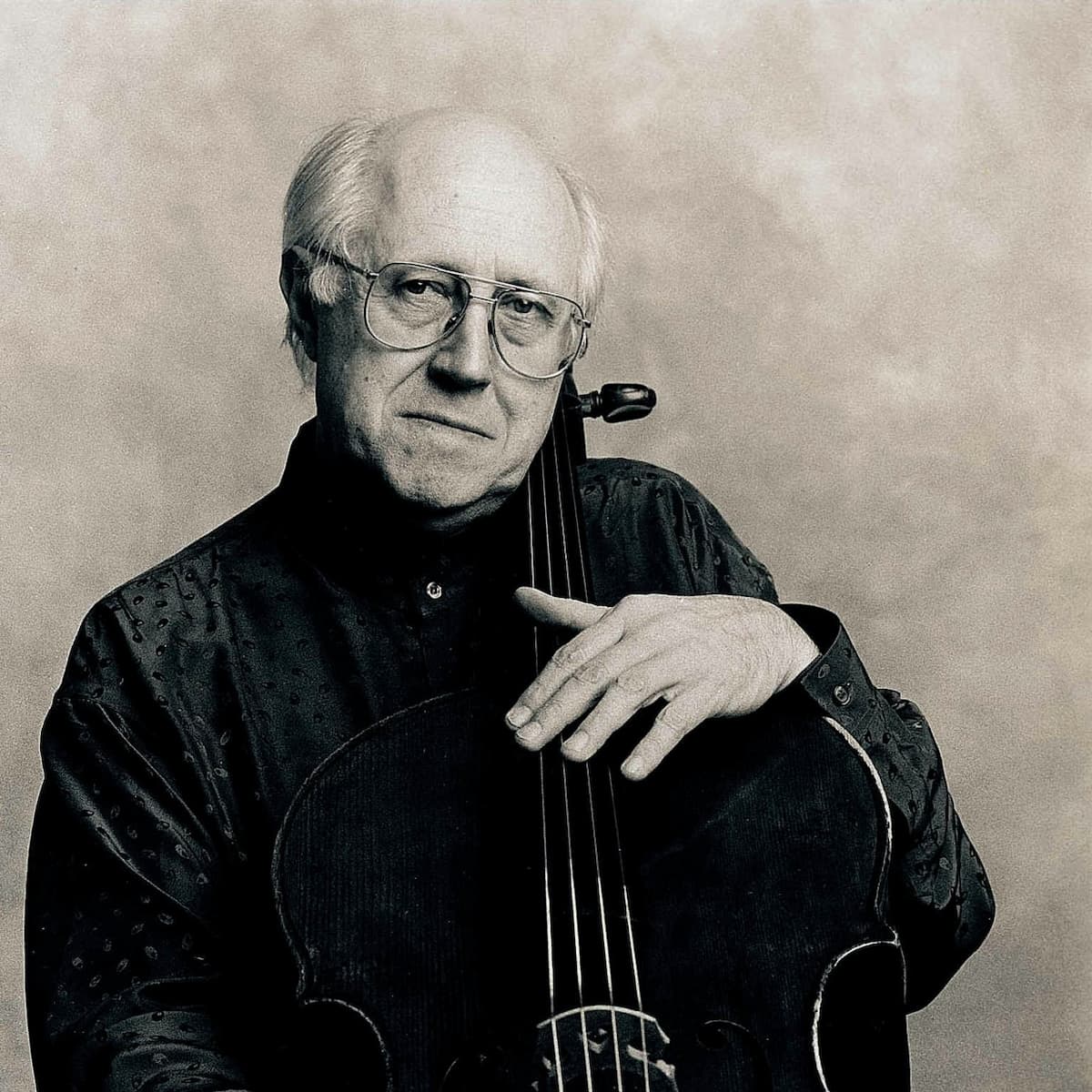
Mstislav Rostropovich
The great Russian cellist Mstislav Rostropovich recorded and performed the Dvořák concerto numerous times. His lush sound and grandiose personality suit the work. Interestingly both his first movement and the finale with the London Symphony and Giulini are almost two minutes slower than Truls Mørk, and slower than his own recordings with Boult and the Royal Philharmonic, and with Ozawa and Boston Symphony. His first movement is wonderfully expansive and brilliant, and the orchestral tuttis are conducted with elegance and largess. Rostropovich plays the last movement finale with lovely contrasts. He takes his time, introducing subtle rubatos or freedoms in several places. This is especially stunning at the end of the piece. Rostropovich plays the last statement in the highest register of the cello with a wondrous vibrato and timelessness.
Antonín Dvořák: Cello Concerto in B Minor, Op. 104, B. 191 – I. Allegro (Mstislav Rostropovich, cello; London Philharmonic Orchestra; Carlo Maria Giulini, cond.)
Antonín Dvořák: Cello Concerto in B Minor, Op. 104, B. 191 – III. Finale: Allegro moderato (Mstislav Rostropovich, cello; London Philharmonic Orchestra; Carlo Maria Giulini, cond.)
Gregor Piatigorsky
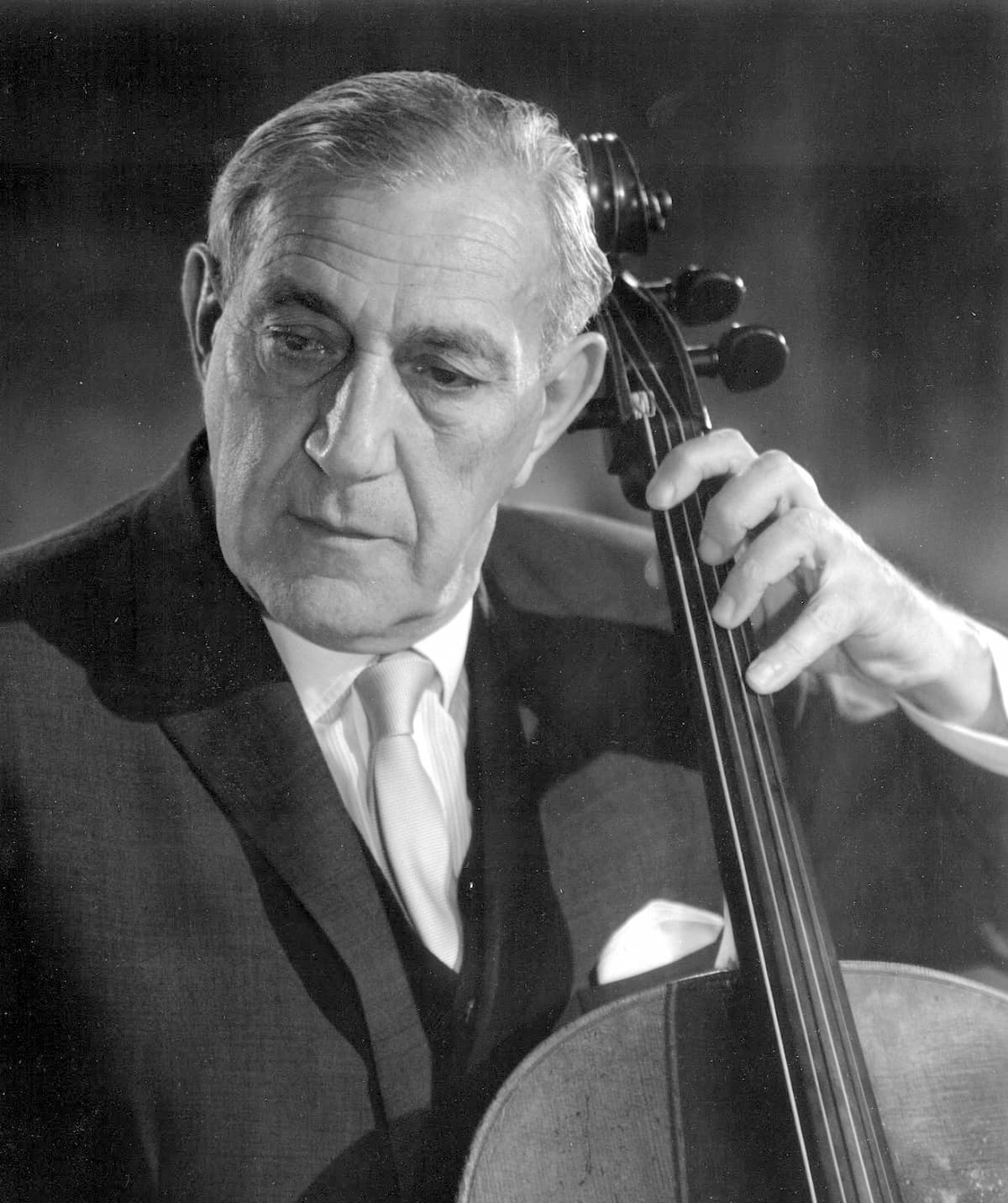
Gregor Piatigorsky
A Russian giant, literally and figuratively, Gregor Piatigorsky recorded the piece with Charles Munch and Boston Symphony. He plays the opening in a more declamatory style and with untold passion. Piatigorsky’s lightning fast vibrato is immediately entrancing and he takes his time with exquisite freedom, lush slides, and subtle nuances in the secondary themes and in the adagio movement. Listen especially to the second movement cadenza. It’s marvelous playing.
Antonín Dvořák: Cello Concerto in B Minor, Op. 104, B. 191 – I. Allegro (Gregor Piatigorsky, cello; Boston Symphony Orchestra; Charles Munch, cond.)
Antonín Dvořák: Cello Concerto in B Minor, Op. 104, B. 191- II. Adagio ma non troppo (Gregor Piatigorsky, cello; Boston Symphony Orchestra; Charles Munch, cond.)
Mischa Maisky
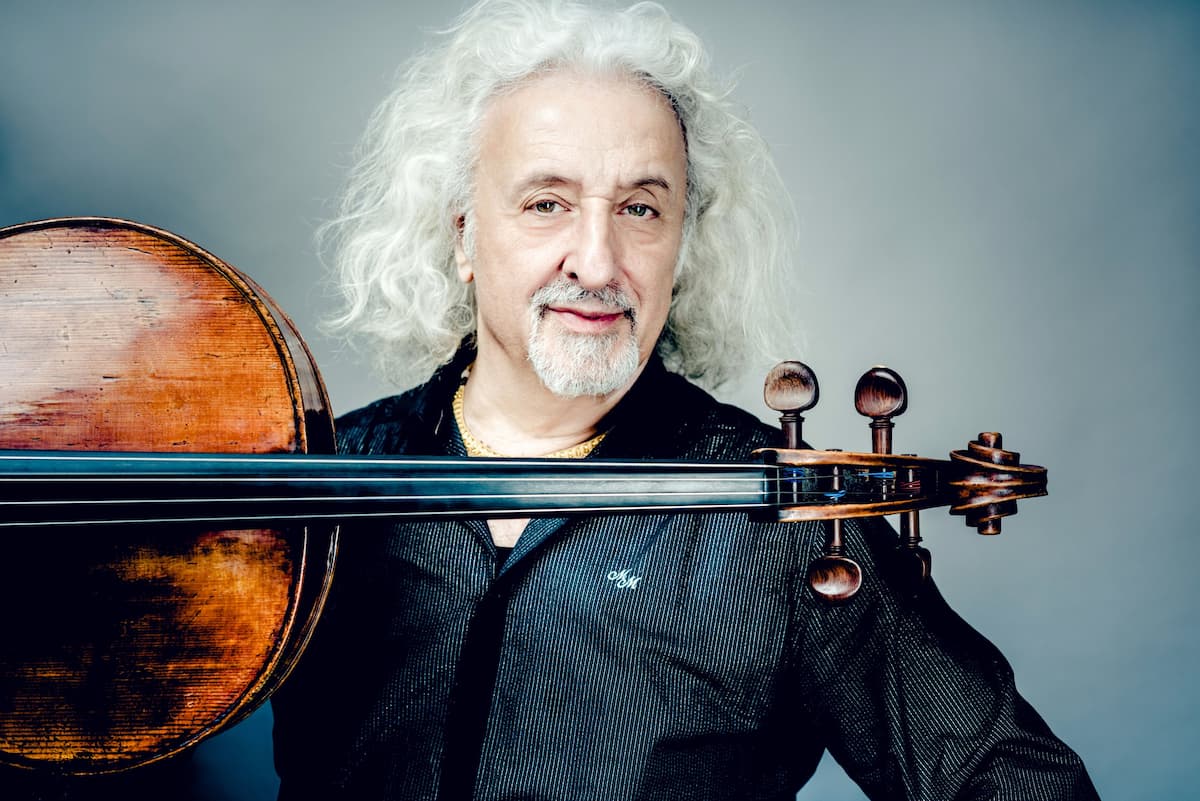
Mischa Maisky
Another Russian, Mischa Maisky, recorded a version with the Berlin Philharmonic and Zubin Mehta and with faster tempos—only thirty-eight minutes total. The first movement moves along, yet the second theme still has the utmost delicacy and understatedness that is lovely. The theme, nine minutes in accompanied by the solo flute, is played with the softest sound, sensitive and heartbreaking. The Adagio is a world of hushed introspection, the tempo more flowing but never hurried. Maisky, like his compatriots, has a warm and rich cello sound that is indispensable for this concerto.
Antonín Dvořák: Cello Concerto in B Minor, Op. 104, B. 191 – I. Allegro (Mischa Maisky, cello; Berlin Philharmonic Orchestra; Zubin Mehta, cond.)
Antonín Dvořák: Cello Concerto in B Minor, Op. 104, B. 191 – II. Adagio ma non troppo (Mischa Maisky, cello; Berlin Philharmonic Orchestra; Zubin Mehta, cond.)
Alisa Weilerstein
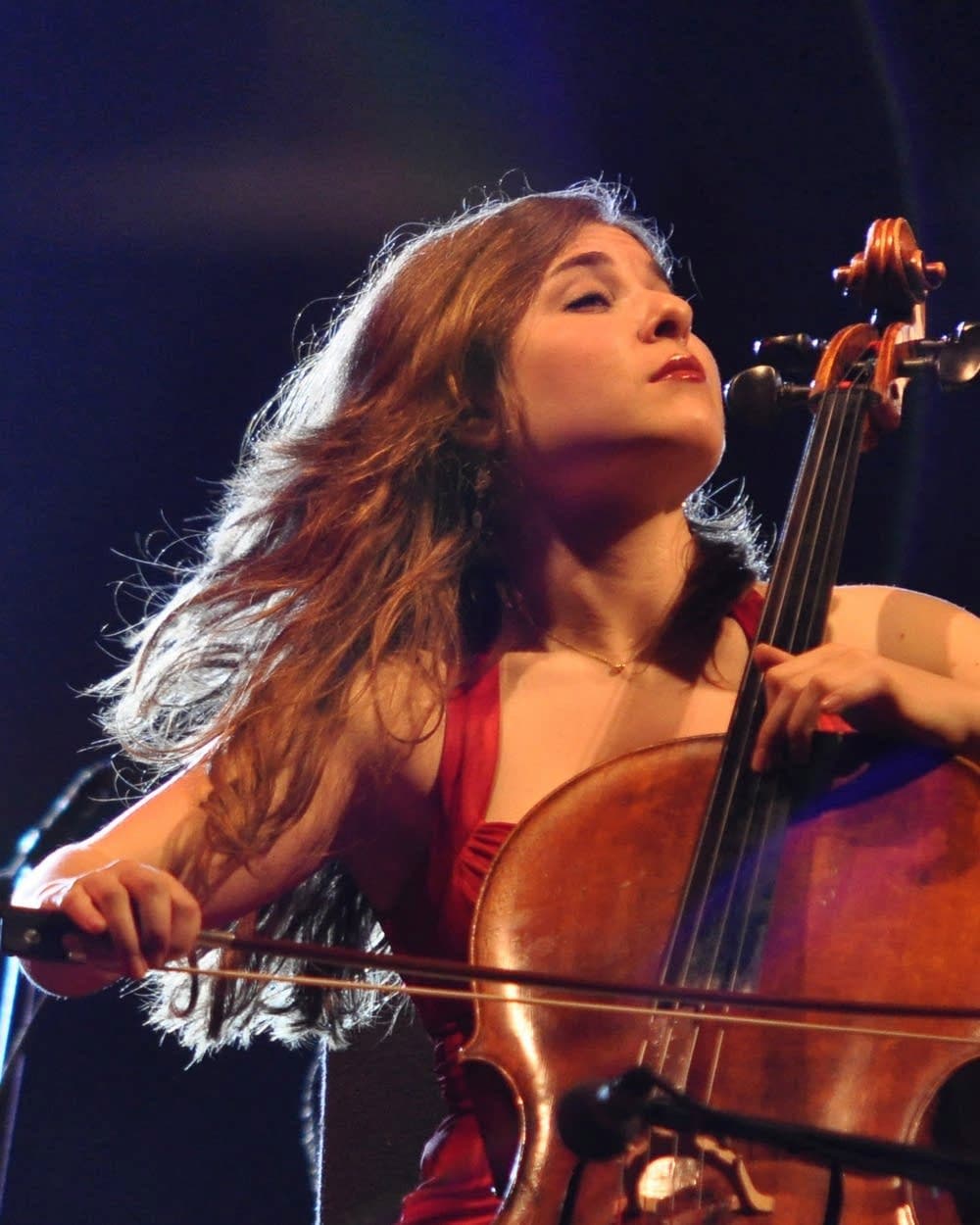
Alisa Weilerstein
American cellist Alisa Weilerstein, plays the Dvořák with the Czech Philharmonic and Bėlohlávek. It is another excellent recording. While she also performs the piece in thirty-eight minutes she captures the sensuous song-like qualities of the piece. Her interpretation has the requisite depth, thoughtfulness, technical bravura, and panache.
Antonín Dvořák: Cello Concerto in B Minor, Op. 104, B. 191 – III. Finale: Allegro moderato (Alisa Weilerstein, cello; Czech Philharmonic Orchestra; Jiří Bělohlávek, cond.)
Gautier Capuçon

Gautier Capuçon
French cellist Gautier Capuçon is one of the most in-demand cello soloists of his generation. His recording with Paavo Järvi conducting the Frankfurt Radio Symphony is excellent too as is the video with Järvi and the Orchestre de Paris. The first movement is the slowest tempo of the four cellists I’ve highlighted and it is a dramatic rendition, free, and technically polished. His vibrato is on the wider side, which allows him to attain the heroic, plush quality of sound. Capuçon’s playing is exuberantly romantic and passionate, and the beautiful filming allows you to see the intensity with which he plays. The musicians in the orchestra, especially the bravura horns and principal flute also play with verve.
Gautier Capuçon Performs Dvořák’s Cello Concerto with Paavo Järvi and Orchestre de Paris
Truls Mørk
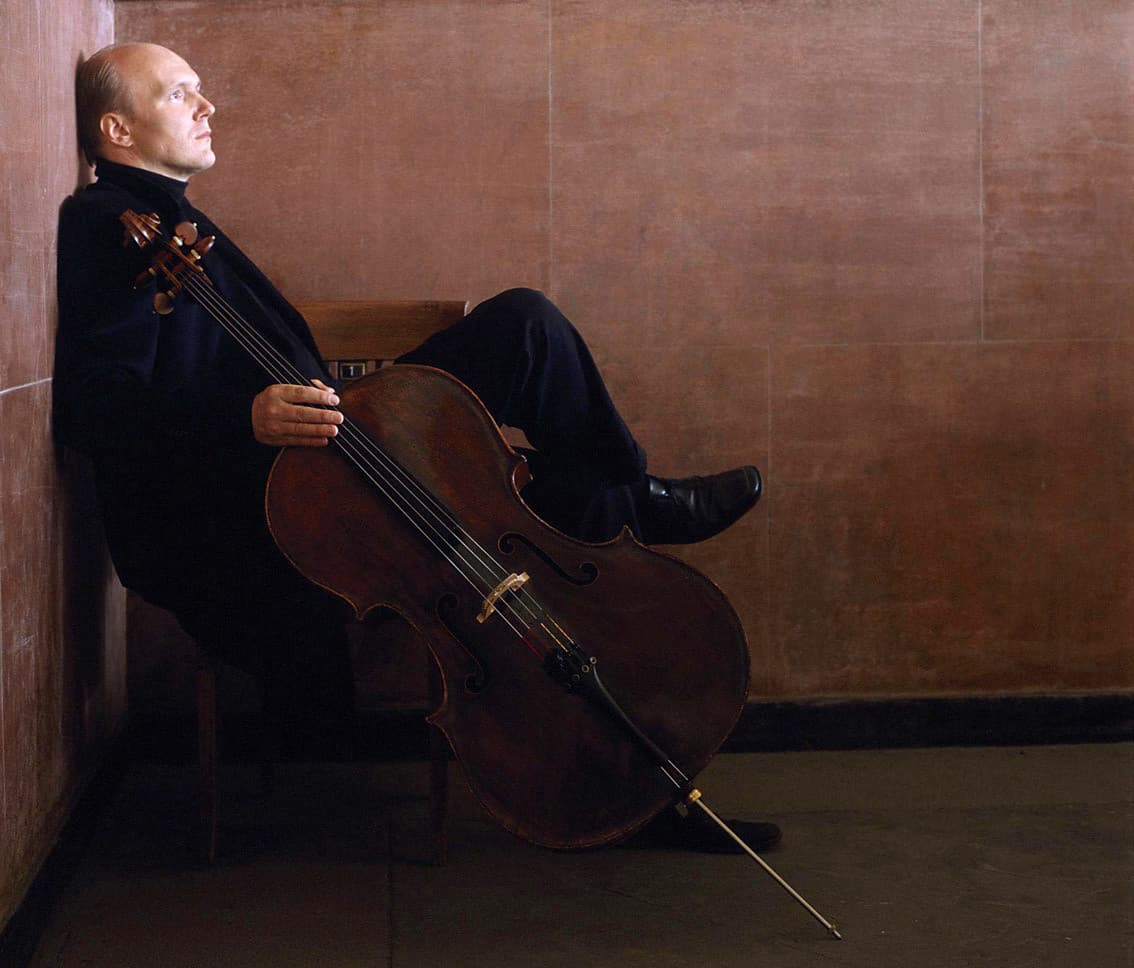
Truls Mørk
Norwegian Truls Mørk’s interpretation of the concerto with the Oslo Symphony and Jansons is one of my favorites. His exceptional sound, scintillating vibrato, and luscious expansiveness are revelatory. Mørk performs the first and last movements more legato or sustained than one typically hears from other cellists and his second movement is played with the utmost intimacy, tenderness, and poignancy. Throughout Mørk maintains an exquisite singing style never allowing the chords or technical flourishes to interrupt the melodic lines and thereby preserving the trademark lyricism of Dvořák’s music. In the finale, from the soaring violin solo seven minutes in through the last bars, he closes the piece with gorgeous sensitivity, sure to produce chills. Mørk’s playing of the concerto is totally compelling.
Antonín Dvořák: Cello Concerto in B Minor, Op. 104, B. 191 – I. Allegro (Truls Mørk, cello; Oslo Philharmonic Orchestra; Mariss Jansons, cond.)
Antonín Dvořák: Cello Concerto in B Minor, Op. 104, B. 191 – II. Adagio ma non troppo (Truls Mørk, cello; Oslo Philharmonic Orchestra; Mariss Jansons, cond.)
Antonín Dvořák: Cello Concerto in B Minor, Op. 104, B. 191 – III. Finale: Allegro moderato (Truls Mørk, cello; Oslo Philharmonic Orchestra; Mariss Jansons, cond.)
How fascinating that listening closely one after the other one can hear each cellist bring their unique stamp upon a work that is played so often. Dvořák succeeded in showcasing all that the cello is capable of and the concerto remains one of the greatest works of the cellists’ repertoire.
For more of the best in classical music, sign up to our E-Newsletter




tenho em cd com Rostropovich e Seije Ozawa !! e em kct com um frances fantástico, Maurice Gendron e a Filarmonica de Londres, e Bernard Haitink !!1 Valeu demais !!!
Jacqueline du Pre has always been my favourite for the Dvorak, but for me the Gautier Capucon is the best of the 6 here. He plays with such passion and depth of feeling. Wonderful.